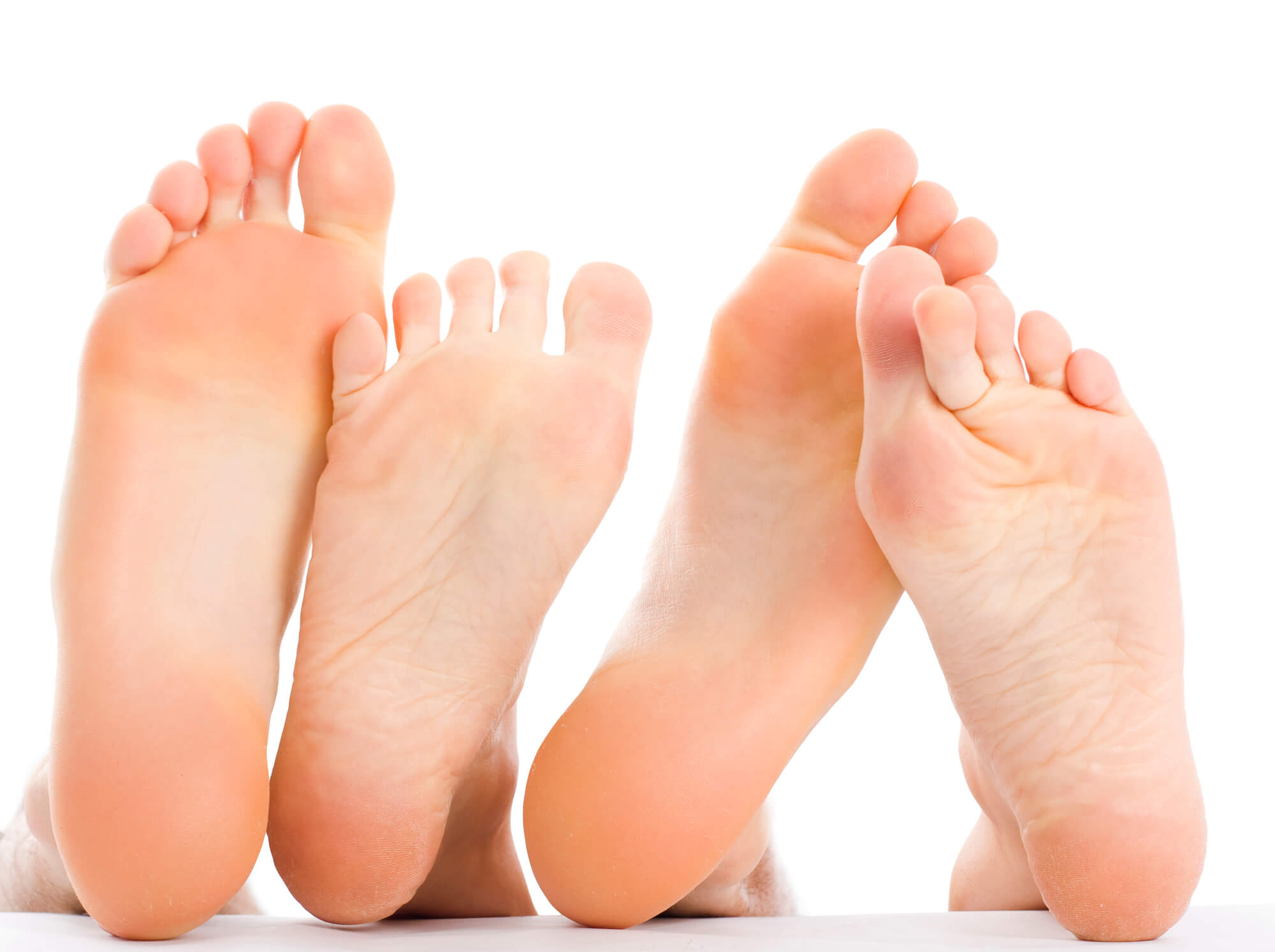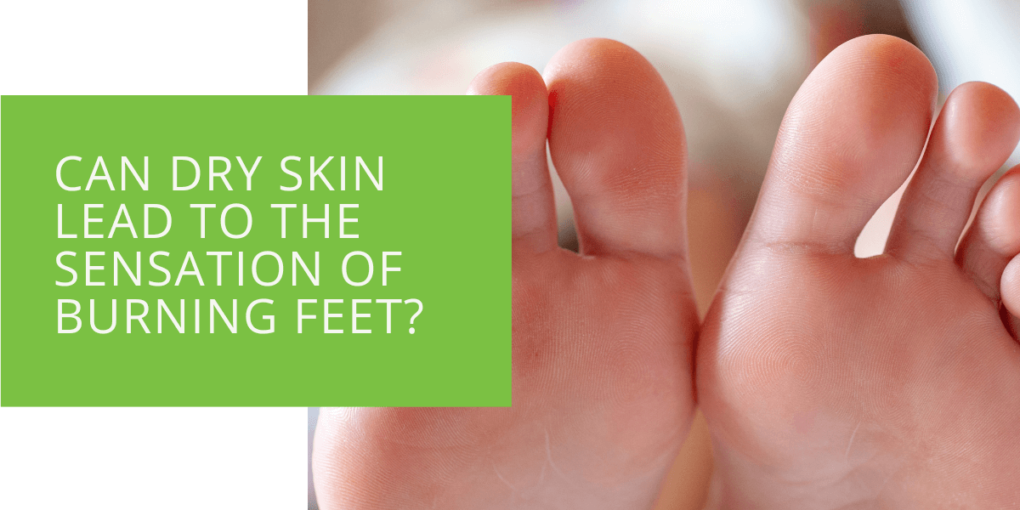Can Dry Skin Lead to the Sensation of Burning Feet?
Dry skin is a common condition that affects many people, but did you know it can also contribute to the sensation of burning feet? If you've ever experienced a burning sensation or discomfort in the soles of your feet, it could be due to dry skin. This article will explore the connection between dry skin and the sensation of burning feet, discussing the causes, symptoms, and potential treatments.
Understanding Dry Skin
Dry skin, medically known as xerosis, is characterized by a lack of moisture in the skin. It can occur anywhere on the body, including the feet. When the skin on your feet lacks proper hydration, it becomes dry, rough, and prone to various issues. Common causes of dry skin on the feet include environmental factors, such as low humidity, excessive heat, and cold weather. Additionally, certain medical conditions like hypothyroidism and diabetes can contribute to dry skin.
Dry Skin and Nerve Endings
The nerve endings in our feet are crucial in detecting sensations such as heat, cold, and pain. When dry skin occurs, it can affect these nerve endings, leading to altered sensations. The reduced moisture content in the skin can disrupt the normal functioning of the nerves, causing them to become more sensitive. This heightened sensitivity can manifest as a burning sensation in the feet.
Dry Skin and Microcracks
One of the primary consequences of dry skin is the formation of microcracks on the skin's surface. These tiny cracks are not always visible to the naked eye but can cause significant discomfort. Microcracks in dry skin can lead to irritation and inflammation, further exacerbating the burning sensation in the feet. Additionally, these cracks create an entry point for bacteria and fungi, increasing the risk of infections.
Treating Dry Skin to Alleviate Burning Feet
Managing dry skin is essential to alleviate the sensation of burning feet. If you're experiencing this discomfort, it's crucial to consult a podiatrist for a professional diagnosis and tailored treatment plan. Here are some general tips to consider:
- Hydration and Moisturization: Keep your feet well-hydrated by regularly applying a moisturizer specifically designed for dry skin. Look for moisturizers with ingredients like urea or lactic acid, which help retain moisture.
- Foot Hygiene: Practice good foot hygiene by washing your feet with lukewarm water and mild soap. Avoid hot water as it can further dry out the skin. After washing, gently pat your feet dry and apply a moisturizer.
- Exfoliation: Regular exfoliation can help remove dead skin cells and promote the absorption of moisturizers. Use a gentle foot scrub or cream to exfoliate your feet once or twice a week.
- Proper Footwear: Choose breathable and moisture-wicking socks and shoes that allow your feet to breathe. Avoid tight-fitting shoes and opt for ones with cushioning and arch support.
- Medical Treatment: In cases where dry skin and the sensation of burning feet are caused by an underlying medical condition, such as diabetes or hypothyroidism, it's crucial to address the primary condition under the guidance of a healthcare professional.

Additional Considerations
While dry skin is a common cause of the sensation of burning feet, there are other potential causes to be aware of. Some conditions that can cause burning or tingling sensations in the feet include:
- Peripheral Neuropathy: Nerve damage, often associated with conditions like diabetes, can lead to burning pain, numbness, and tingling in the feet.
- Tarsal Tunnel Syndrome: This condition occurs when the tibial nerve, located in the ankle, becomes compressed or damaged, resulting in a burning sensation in the feet. Tarsal tunnel syndrome can cause pain, tingling, and a burning sensation that radiates from the ankle to the sole of the foot.
- Fungal Infections: Certain fungal infections, such as athlete's foot, can cause itching, burning, and redness in the feet. These infections thrive in warm and moist environments, making dry skin less susceptible to such conditions.
- Circulatory Issues: Poor circulation can also contribute to the sensation of burning feet. Conditions like peripheral artery disease (PAD) can restrict blood flow to the feet, leading to discomfort and a burning sensation.
If you experience persistent or severe symptoms, it is important to consult a podiatrist for a thorough evaluation and appropriate treatment.
Conclusion
Dry skin can indeed contribute to the sensation of burning feet. The lack of moisture can affect the nerve endings and cause increased sensitivity, while microcracks in the skin can lead to irritation and inflammation. Taking steps to address and manage dry skin can help alleviate the burning sensation in your feet.
Remember to maintain proper foot hygiene, use moisturizers for dry skin, and consider exfoliation as part of your skincare routine. Additionally, wearing appropriate footwear and seeking medical attention for underlying conditions, such as diabetes or tarsal tunnel syndrome, can further aid in managing the discomfort.
If you're experiencing persistent or worsening symptoms, it's essential to consult a podiatrist for a comprehensive assessment and personalized treatment plan. By addressing dry skin and its potential causes, you can find relief from the burning sensation and improve your feet' overall health and comfort.
Take care of your feet, prioritize proper foot care, and seek professional guidance for any concerns or persistent symptoms. Don't let dry skin keep you from enjoying the comfort and mobility of your feet.
Key Takeaways
- Dry skin can contribute to the sensation of burning feet due to its impact on nerve endings and the formation of microcracks in the skin.
- Proper hydration, moisturization, and good foot hygiene are essential in managing dry skin and alleviating the burning sensation.
- Underlying conditions such as diabetes, tarsal tunnel syndrome, and fungal infections can also cause burning sensations in the feet and should be addressed by a healthcare professional.

